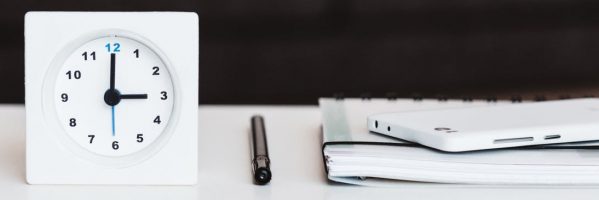Taking Action on Climate Change, and More – Boston News

Let’s explore some of the most interesting stories that have emerged from Boston business schools this week.
This Tool is Pushing People to Take Action on Climate Change – MIT Sloan Newsroom
New research from MIT Sloan Professor and Sustainability Initiative Director John Sterman finds that the role-play simulation World Climate, in which “participants take on the role of delegates to the UN climate change summits, and negotiate face-to-face with other participants to reach a climate change agreement,” might assist the powers that be understand and inspire environmental change.
Sterman and his co-authors write, “The results indicate that World Climate offers a climate change communication tool that enables people to learn and feel for themselves, which together have the potential to motivate action informed by science.”
“Research shows that showing people research doesn’t work. World Climate not only boosts people’s knowledge of climate change and increases the urgency they feel, but also generates gains in hope.”
You can read the full article here.
The Legacy of Boaty McBoatface: Beware of Customers Who Vote – HBS Working Knowledge
Harvard Business School Professors Michael Norton and Leslie John recently co-authored a new working paper about the pitfalls of crowdsourced naming competitions. Case in point: Boaty McBoatface, the winning entry for the National Environmental Research Council’s online voting poll to name the agency’s new research vessel.
When NERC overruled ‘Boaty McBoatface,’ there was massive public backlash. Professor Norton explains, “When firms conduct online polls, people frequently submit ridiculous entries; and with social media, those entries will go viral. But even when firms never guarantee that consumers will choose the winner, consumers infer an implicit contract and are upset when that contract is violated.”
The researchers incorporated the NERC case study into its research as a compelling example of how companies can potentially violate consumer trust in crowdsourced polls, according to John. “It’s offensive because consumers feel as though the firm broke the contract.”

In 2016, the National Environmental Research Council conducted a public poll to name its vessel. The winner, infamously, was Boaty McBoatface, but the council renamed it to the RRS Sir David Attenborough.
Norton and John offer a number of options that allow companies to safeguard against potential fallout from “off-the-wall choices” by being “very explicit about how they will consider the voice of consumers before the vote begins.”
The researchers also advise “pre-selecting acceptable outcomes on which consumers can vote, culling options from consumer suggestions without publicizing the actual number of votes for each, [or] setting up some kind of screening process, by which only actual customers can vote, but giving out a voting code attached to products.”
You can read more from Norton and John here.
From Building on Bones to Building on Blockchains: D’Amore-McKim Students Experience Russia – DMSB Blog

Marina Hess DMSB21 and Anya Losik COS21 pose at the border between Europe and Asia
The D’Amore-McKim School of Business at Northeastern University recently profiled 16 students who took part in a month-long Russian study abroad trip entitled “Driving Growth in Russia: From Building on Bones to Building on Blockchains.”
Yuan Vu Dinh Van (DMSB ’21) broke down the major takeaways from the cross-country excursion.
“By visiting Russia, I was able to see a different way of doing business compared to the model used in the U.S. Business in Russia seems to be conducted similarly to that of Ecuador, as only the people with the contacts and the money succeed in business, while in the U.S. it is easier for anyone to do that.”
Van adds, “I also learned about different ways to manage people, as Russian employees often prefer to be given orders and don’t have as much freedom as U.S. employees typically have in regards to the decision making. It really opened my mind to how important the role culture plays in doing business in different countries.”
You can read more from the interview here.
Harvard Business School Research Offers New Spin on “Time Is Money” Axiom

Money can buy happiness, according to recent research from the Harvard Business School. But, it primarily has to be spent on making time.
Ashley Whillans, an Assistant Professor of Business Administration at HBS, published research on the “impact of buying one’s way out of negative experiences,” whether that means find ways to reduce a commute or taking a vacation. She points to “time stress”—or the tension that arises when time becomes a scarce resource—as a critical source of unhappiness, especially for many wealthy individuals. She explains:
“People have been trying to find ways to use their discretionary income to maximize their quality of life for a long time. We were really interested in seeing if buying ourselves out of negative experiences might be another pathway to happiness that had been relatively unexplored.”
For the purposes of their research, Whillans and her team define happiness as both overall and moment-to-moment satisfaction.
Whillans surveyed American, Canadian, Danish, and Dutch citizens across the socioeconomic spectrum about their feelings after they made a time-saving purchase. All participants generally reported positive feelings after ordering take-out food, for instance, but Whillans found that when they made these purchases too often, consumers developed a type of “hedonic adaptation” where they used the extra time to do something pleasurable rather than productive.
The role of gender in the time/money/happiness equation is notable, particularly when it comes to the post-work childcare and housekeeping “second shift” many American and Canadian women have to pull. The result is that women “have more educational opportunities than before, and [are] likely to be making more money and holding high-powered jobs but their happiness is not increasing commensurately.”
In ongoing research Whillans is pursuing with Michael Norton, a Harold M. Brierley Professor of Business Administration, into the influence that time-saving purchases have on relationship satisfaction, she explains that “both men and women feel less pulled between the demands of work and home life, and that positively impacts the relationship.”
Whillans’ research offers tangible proof that outsourcing specific tasks throughout the week is a fiscally responsible way to relieve stress.
Check out the rest of Harvard Magazine’s story on the research here.
